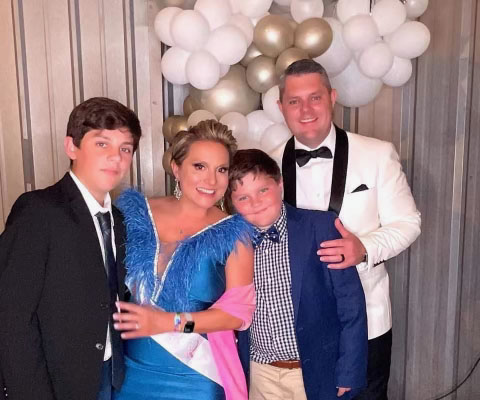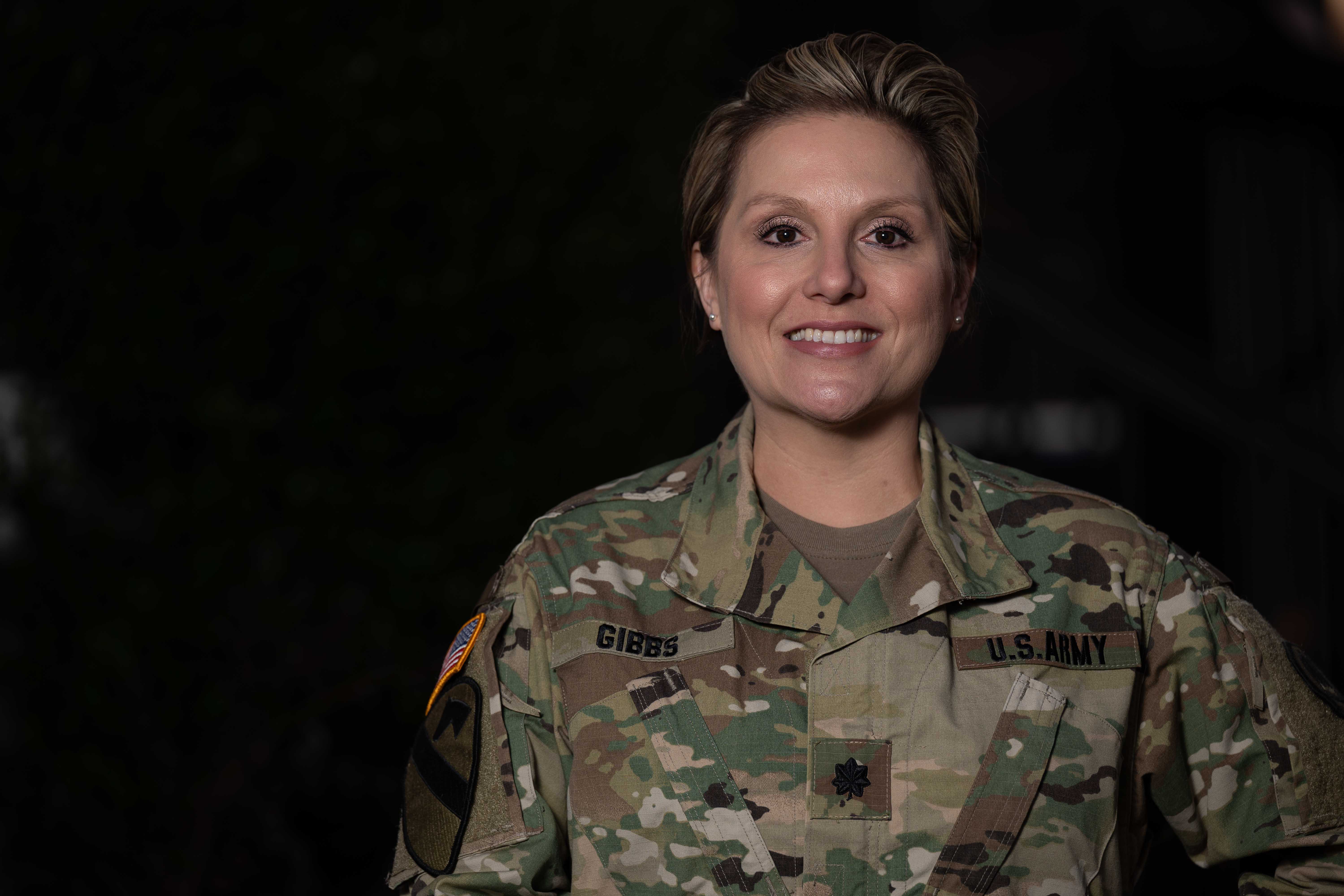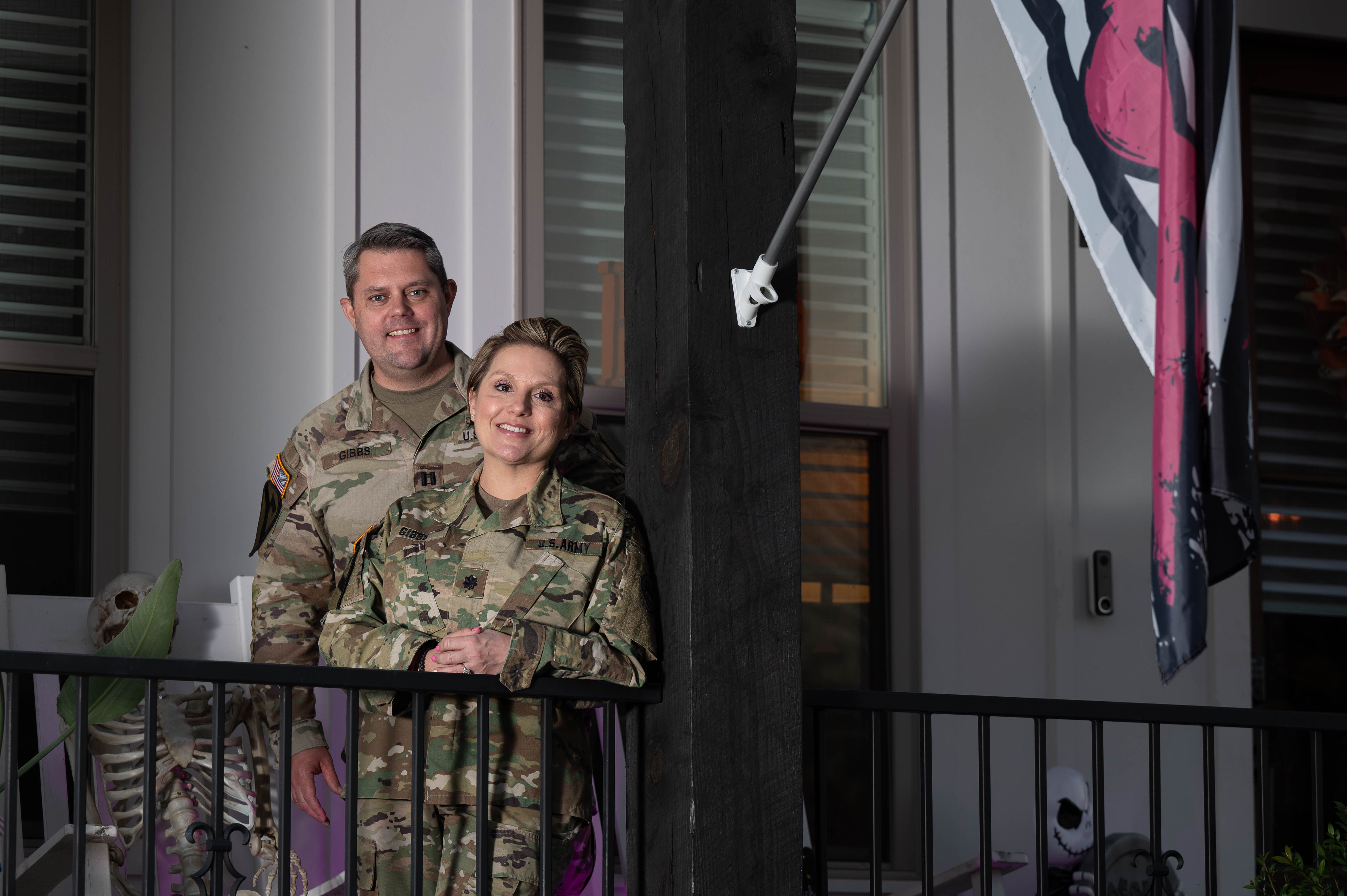By Staff Sgt. Garrett Dipuma, Louisiana National Guard Public Affairs Office
NEW ORLEANS – This October, the Louisiana National Guard stressed the importance of breast cancer awareness across its formations and to the local communities.
Breast cancer awareness month, observed every October, is an annual campaign to raise awareness about the impacts of breast cancer and the importance of preventative screenings and care.
According to the Center for Disease Control (CDC), roughly 240,000 women are diagnosed with breast cancer in the U.S. every year, and roughly 42,000 women die from the disease annually. Most breast cancers are found in women over 50, but it also affects younger women and some men.
“The American Cancer Society, the American Society of Breast Surgeons, and the United States Preventative Services Task Force all differ in their screening recommendations,” said Col. Katrina Lloyd, LANG state surgeon. “These differences can be confusing without education and awareness of personal risk factors.”
Lloyd said that every woman should speak with their health care provider to determine the best age for screening based on their individual risk factors. She said that men should also speak to their provider if they have concerns.
“Recent studies indicate that breast cancer rates among male veterans, although low, have risen by 26% since 1975,” said Lloyd. “Why be concerned or cautious? As women, we are advised and taught to do monthly breast exams. Men are not. Everyone, no matter their gender, should do monthly self-breast examinations.”
According to the Center for Disease Control, mammograms are the best way to find breast cancer early, when it is easier to treat and before it is big enough to feel or cause symptoms.
“A cancer diagnosis does not automatically send a Soldier into a [medical evaluation] board
process, nor does it mean automatic retirement or separation from service,” said Lloyd. “There are many cancer survivors who continue to serve and make a difference in our armed forces every day.”
One such person is Lt. Col. Taysha Gibbs, a 25-year veteran of the LANG. She and her husband, Capt. Josh Gibbs, live in Arabi with their two sons, Aidan and Alec.
“I was shocked, in disbelief,” said Gibbs. “I work out, I eat right, I drink a lot of water. I take care of myself. I didn’t have any symptoms [when the cancer was diagnosed]. My doctor that I went to just a few months before my mammogram did an exam on me and found nothing. How do I have cancer?”
Gibbs, 42, is the deputy chief information technology officer for the LANG. She was diagnosed with stage IV metastatic breast cancer in December 2020 after her first mammogram.
 “I’m fighting for my boys,” she said. “I want to see my boys grow up. I want to see them go to college and whatever else their future holds. I fight for that every day.”
“I’m fighting for my boys,” she said. “I want to see my boys grow up. I want to see them go to college and whatever else their future holds. I fight for that every day.”
As of February, Gibbs learned that she shows no evidence of disease (NED). Although good news, there is no cure for her cancer, and there is a chance that some remaining cancer cells could cause a recurrence in the future.
“It’s been a hard road, but at the end of the day I’ve had a great support system,” said Gibbs. “The military and the community have been great to me, and I’m very thankful for that.”
“I would tell women and men to do your yearly exams, do your checks, and if your insurance allows you to get your mammogram early, do so,” said Gibbs. “If you’re a veteran and you have been diagnosed…look into your new rights and see what is available to you.”
She stressed that anyone who deployed needs to be aware of the Sgt. 1st Class Heath Robinson Honoring our Promise to Address Comprehensive Toxics Act, better known as the PACT Act. The law extends and expands eligibility for VA health care and benefits for veterans with toxic exposures during the Vietnam and Gulf wars as well as the post-9/11 era.
Symptoms of breast cancer can include: any change in the size or shape of the breast; pain in any area of the breast; nipple discharge other than breast milk, including blood; and a new lump in the breast or underarm. Some people show no symptoms, so it is still important to be screened even if there are no symptoms present.
Some measures to reduce risk of breast cancer include regular exercise and healthy weight management; drinking alcohol in moderation or choosing not to drink at all; talking to a doctor about any risks with hormone replacement therapy or birth control; and breastfeeding children if possible.
“No matter what we’re going through, you have to stay positive,” said Gibbs. “You have to keep fighting. The moment you don’t, it’s harder to keep surviving. I’m going to keep thriving.”







